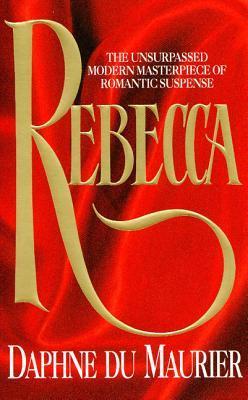
Whenever somebody asks me the near-impossible question, “What’s your favorite book?” I always respond with one of two answers: “Jane Eyre,” or Daphne du Maurier’s 1938 novel “Rebecca,” a tale of suspense and mystery that captivated readers 85 years ago and continues to do so today.
“Rebecca,” contrary to the title, follows the narrative of a young woman who is never referred to by her name, which the reader never finds out. At the beginning of the novel, this woman, often called “The Second Mrs. de Winter” quickly falls in love with an older, mysterious gentleman – Maxim – on a trip to Monte Carlo and marries him soon after.
The story truly begins when the unnamed narrator is brought to her new husband’s estate: Manderley, Maxim’s ancestral home with an immense history. After we are swept away to the estate, it becomes immediately clear that not everything is what it seems. The reader is pulled into the mystery of the novel as soon as we realize it exists.
Once our protagonist arrives, she learns about Maxim’s late wife, the titular “Rebecca,” and how beloved she was to all who knew her. The descriptions of the new Mrs. de Winter exploring her new home in these early scenes are some of my absolute favorite moments in the novel, showcasing the richness of du Maurier’s writing.
The central characters are a highlight of the novel, with the Second Mrs. de Winter serving as an interesting and sometimes sad narrator. The reader easily sympathizes with her want to be as valuable and “good” as Rebecca was in her husband’s eyes, but the novel’s story also allows us to realize that she is not just some wide-eyed girl without a brain in her head, but a woman who, deep down, knows what she wants in life.
Maxim is … interesting. I don’t quite know how else to describe him without giving too much away. He is brooding and mysterious, and the novel takes its sweet time telling the reader whether or not to love or hate him. Despite his frustrating nature, though, his character more than serves his purpose in the story.
In addition to some more minor characters – including Maxim’s sister and her husband who are absolutely delightful to read about whenever they are present – there is one character who, in my opinion, makes “Rebecca” as brilliant as it is and is a major reason the novel has remained an iconic touchstone of the modern gothic: Mrs. Danvers. Mrs. Danvers is the housekeeper of Manderley who had an extremely close relationship with Rebecca and she is sure to make our narrator aware of that. She looms over the narrative, always in the back of the reader’s mind even when she isn’t actually present on the page. She is, by a mile, the most interesting character in the novel and, I believe, one of the greatest literary villains of all time.
There is no novel I can think of that is more immersive and enthralling than “Rebecca.” The first time I read it, I was entranced by the unique narration, haunting writing style and complicated characters that you can never quite figure out. “Rebecca” is the epitome of a true gothic novel, with Manderley itself being just as much of a main character as the people in the story.
If you are looking for an engrossing, suspenseful, well-written and unique novel that will leave you asking “What did I just read?”, du Maurier’s “Rebecca” is the one for you.


























































































































